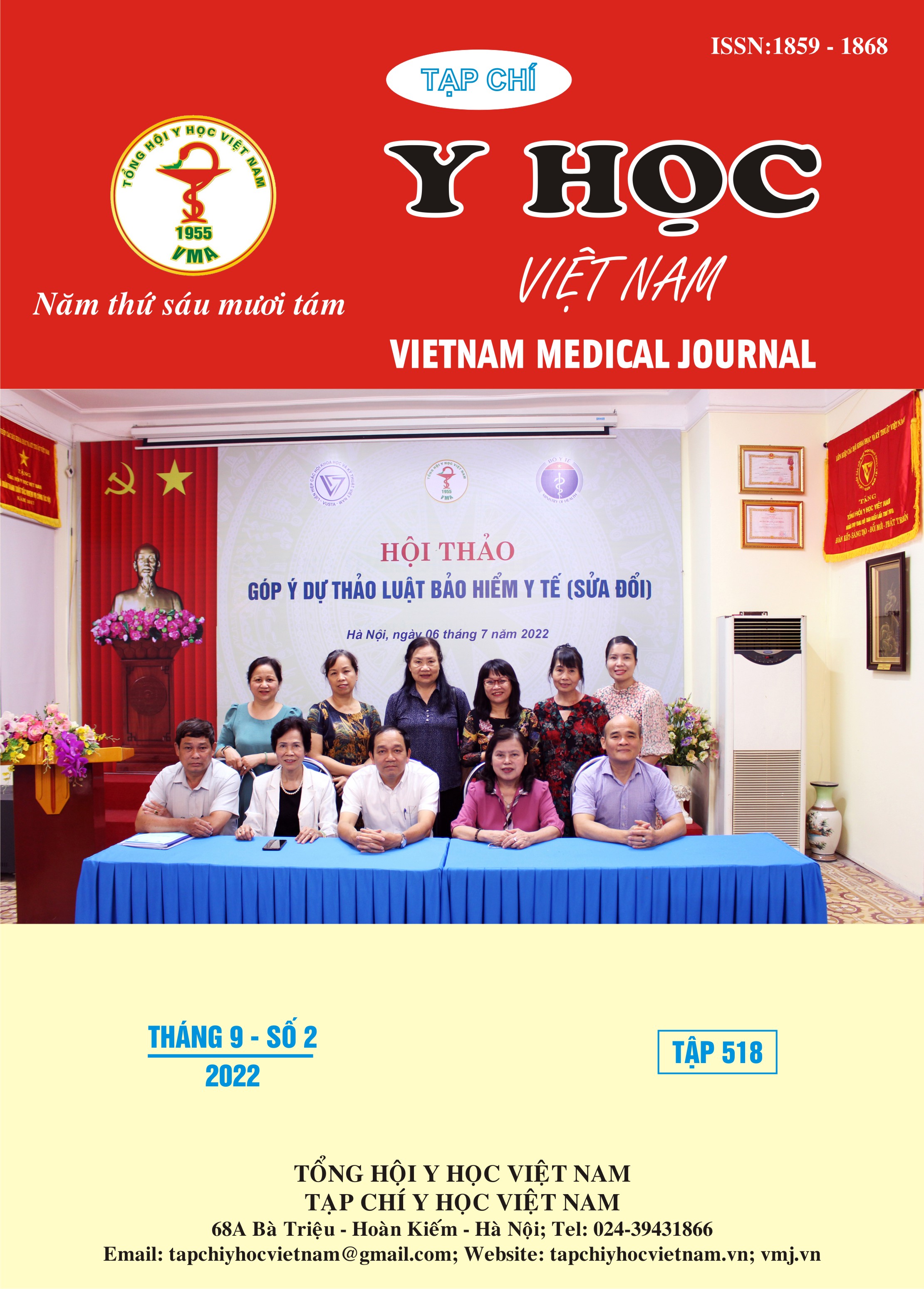SOME FACTORS RELATED TO KNOWLEDGE ON REPRODUCTIVE HEALTH OF ADOLESCENTS IN HOANG MAI TOWN, NGHE AN PROVINCE IN 2022
Main Article Content
Abstract
The National Action Plan on Reproductive Health for Adolescents in Vietnam for the period 2020 - 2025 has emphasized the goal: at least 80% of adolescents have an understanding of the basic contents of reproductive health care. such as safe sex, contraceptive methods, consequences of unwanted pregnancy and unsafe abortion, and prevention of sexually transmitted diseases [1]. The study was conducted on 409 female students studying in Quynh Thien middle school ward and Hoang Mai high school located in Hoang Mai town, Nghe An from January 2022 to June 2022. Obtained results: 35.2% of research subjects have good general knowledge; 64.8% of the study subjects had bad general knowledge. There is a statistically significant relationship (p < 0.05) between individual characteristics of research subjects and general knowledge of reproductive health: The group of children in early adolescence is likely to have knowledge about reproductive health. not good is higher than that of late adolescents (OR = 10.08). The group of middle school students is more likely to have bad knowledge than the group of high school students (OR = 7.26). The group of children living with both parents is likely to have better knowledge than the group living with only one parent/others (OR = 3.16). The group of children who have menstruated have better knowledge than those who have not had periods (OR = 9.59). The group of children with/with a lover has better knowledge than the group without a lover (OR = 9.19). The group that received reproductive health education at school/club was likely to have better knowledge than the group that did not receive any reproductive health education (OR = 9.04). Children whose mothers are farmers are more likely to have poor knowledge of reproductive health than those whose mothers are officials (OR = 2.58).
Article Details
Keywords
knowledge, adolescence, reproductive health
References
2. Đào Nguyễn Diệu Trang, Phan Thị Bích Ngọc (2021), Nghiên cứu thực trạng sức khỏe sinh sản và đánh giá hiệu quả của mô hình can thiệp ở nữ vị thành niên huyện miền núi A Lưới, tỉnh Thừa Thiên Huế, Luận án Tiến sỹ Y học, Trường Đại học Y dược Huế, Huế.
3. Hoàng Thị Hoa Lê, Vũ Thị Thơm và các cộng sự (2021), "Thực trạng kiến thức, thái độ, thực hành về sức khoẻ sinh sản của học sinh trường Trung học phổ thông chuyên Trần Phú, Hải Phòng năm 2019", Tạp chí Y học Dự phòng. 31(1), tr. 256-264.
4. Nguyễn Thanh Phong (2017), Nghiên cứu kiến thức, thái độ, thực hành về các biện pháp tránh thai của sinh viên một số trường đại học/cao đẳng thành phố Hà Nội và hiệu quả giải pháp can thiệp, Luận án Tiến sỹ Y học, Trường Đại học Y Hà Nội, Hà Nội.
5. Tổng cục Dân số-Kế hoạch hóa gia đình và Tổng cục Thống kê (2010), Điều tra Quốc gia về vị thành niên và thanh niên Việt Nam 2008 (SAVY2), Hà Nội.
6. Tổng Cục Thống Kê (2020), Kết Quả toàn bộ tổng điều tra dân số và nhà ở 2019, Hà Nội.
7. Biruk Beletew Abate, Kalkidan Habtamu Gelaw, et al (2020), "Knowledge Level and Associated Factors of Reproductive Health Issues among Secondary School Students in Woldia Town, Amhara, Ethiopia, 2019: A Cross-Sectional Study", Journal of environmental and public health. 2020, p. 2515292-2515292.
8. Viengnakhone Vongxay, Femke Albers, et al (2019), "Sexual and reproductive health literacy of school adolescents in Lao PDR", PloS one. 14(1), p. e0209675-e0209675.


